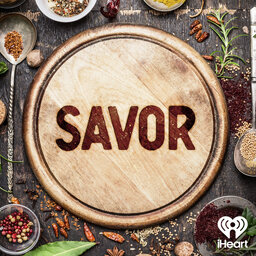Making Peace with Olives
These fruits prove that being bitter and oily doesn’t mean you can’t be popular. Anney and Lauren pit their wits against the science and history of olives.
Learn more about your ad-choices at https://www.iheartpodcastnetwork.com
In 1 playlist(s)
Savor
Savor digs into how people live and how they eat – and why. Hosts Anney Reese and Lauren Vogelbaum i…Social links
Follow podcast
Recent clips

Savor Gives You a Raspberry
36:28

Seeing Red Beans and Rice
35:46

Pining for Taiwanese Pineapple Cake
34:25
 Savor
Savor